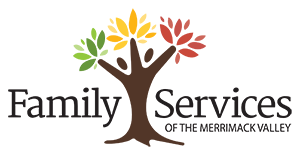MENTAL HEALTH Trainings Overview
Family Services of Lawrence Massachusetts is pleased to provide a menu of trainings including Question/Persuade/Refer (QPR), Young Mental Health, and Identifying Suicide Risks, that help individuals from all walks of life gain the knowledge and skills they need to identify and intervene with people struggling with mental health challenges. Training attendees will learn how to recognize the risk factors, warning signs, and protective factors for mental health problems, including risk for suicide, how to talk with an individual at risk, and how to connect them with additional resources.
All trainings are offered FREE of charge.
Question, Persuade, Refer (QPR)
QPR is a 1.5 – 2-hour training in which participants will learn three simple steps to help prevent suicide and be a resource for someone who might be struggling. Training participants learn how to recognize suicide risk factors, how to intervene, and how to refer someone in need.
Tues, 5/20/25
12:00 – 2:00
Virtual
Tues, 6/24/25
10:30 – 12:30
Virtual
Wed, 7/23/25
2:00 – 4:00
Virtual
Youth Mental Health First Aid
YMHFA is a 6-hour training (plus up to 2 hrs of online pre-work) that helps adults who regularly interact with youth to recognize, support, and refer youth who are experiencing mental health challenges or may be in crisis. It gives adults the skills they need to provide initial support and connect adolescents (ages 12-18) to appropriate care.
Thurs, 9/18/25
9:00 – 3:00
In-Person, Family Services, Lawrence
[email protected]
to schedule a training for your organization
Suicide and Aging: Fact or Fiction (2 hours)
This training is offered to reduce the incidence of suicide in older adults (65+) by training individuals who serve as gatekeepers for that population. This training is geared toward a non-clinical audience and provides information on recognizing risk factors, warning signs, and protective factors for suicide in older adults, how to talk with someone at risk, and addresses misperceptions around aging, mental health, and suicide.
Thurs, 3/27/25
1:00 – 3:00 pm
Virtual
Suicide in Adults: The Gender Paradox (2 hours)
This training aims to reduce the incidence of suicide among middle-aged adults (45-64) by training clinicians and other individuals who serve as gatekeepers of middle-aged adults. Participants will learn statistics specific to middle-aged adults and gender differences for suicide and depression.
Mon, 3/31/25
10:00 am – 12:00 pm
Virtual
Suicide and Aging: A Gatekeeper’s Workshop (4 hours)
This workshop is designed for individuals or agencies who want an expanded suicide prevention training to reduce the incidence of suicide in older adults (65+). This workshop expands upon the two hour training content above and also includes larger discussions around the aging process- addressing positive/negative changes in older age, concerns of older adults, and common attitudes toward aging, ageism, highlights the importance of protocol development and review, and includes more time to review case scenarios to practice assessing suicide risk, discussing issues and concerns, and identifying types of referrals.

Schedule a Training for Your Organization, School, Business or Group
If you would like to schedule a training for your organization, call 978-327-6662, EMAIL to inquire, or submit the Training Inquiry form.
